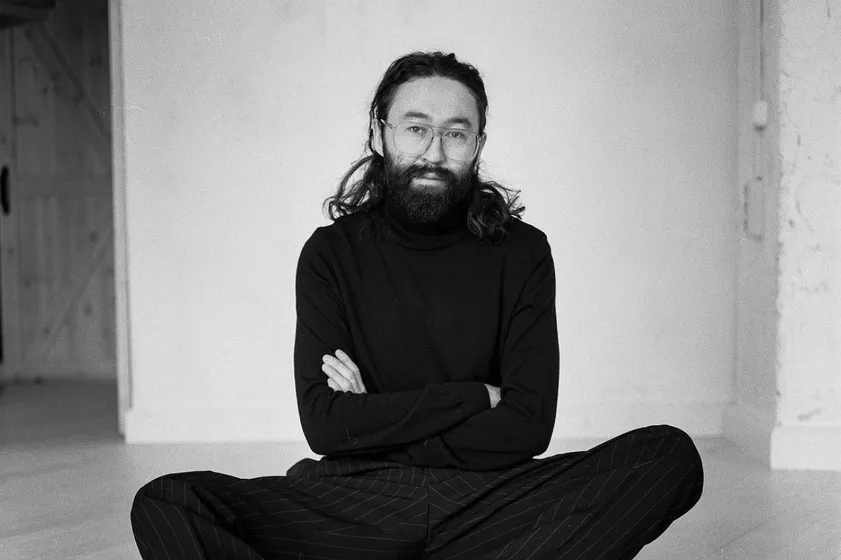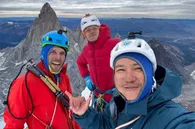In the dynamic realm of Kazakhstan's creative industries, a testament to the nation's enduring commitment to artistic innovation and expression emerges through the creative journeys of the new wave of Kazakh filmmakers and artists. Their success stories inspire the future generation of local talents and reinforce the country's position as a creative industry powerhouse in the global landscape.
From majoring in public administration to becoming a recognized filmmaker, Malik Zenger’s journey is a testament to his enduring passion for creativity. The director can boast a diverse portfolio, from thought-provoking music videos for Galymzhan Moldanazar to a surprising collaboration with the Black Eyed Peas, all while navigating the intricate landscape of Kazakhstan's film industry.
Malik Zenger sat down with QazMonitor to talk about how he finds balance between commercial and creative projects, and why the film industry in Kazakhstan is facing challenges.
Before studying at the New York Film Academy, you majored in Public Administration in Kazakhstan. How did you get into filmmaking?
The creative aspect of my life has always been there, ever since my school days. I was always interested in music, painting, theater, and acting. It never left me, and even while studying public administration at KIMEP, I was still looking for ways to express my creativity everywhere: by joining film clubs, KVN, and theater. So, perhaps it was my calling, sooner or later, I ended up pursuing what I am doing.
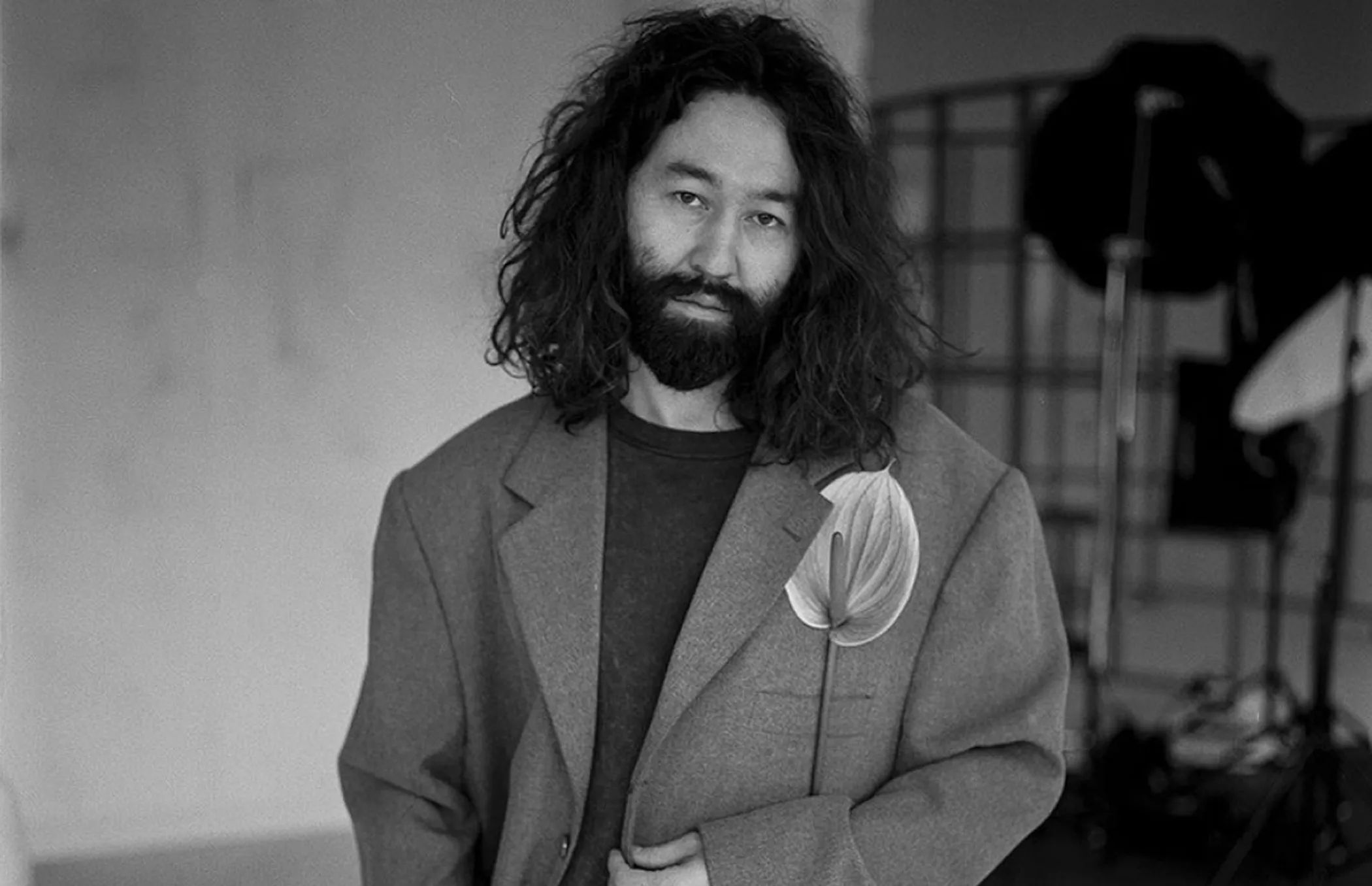
Your work has received recognition both in Kazakhstan and abroad, especially the music video for Galymzhan Moldanazar’s 'Kogershin'. What are the differences in the reactions to the video between the festival audience and the general public?
You are right, it depends on the audience. Essentially, we have been shaping Galymzhan's audience together for a long time. We always incorporated messages, social themes, and topics that could engage people in a dialogue. That is the goal we had. But in general, unfortunately, there are not too many people that can be called to think critically, maybe that is one of the reasons why not that many people watch Galym's videos.
Recently, you had the opportunity to work with Black Eyed Peas. Please tell us more about your collaboration. How did the video shoot go?
I have a close friend, Tigran Mutafyan, who lives in Los Angeles and works there. He has been a part of Black Eyed Peas' team for the past five to seven years as their staff camera operator. When Black Eyed Peas decided to film their music video, he said, “Let's not shoot this with just anyone; let's entrust this to the guys from Kazakhstan. My friend Malik Zenger can take care of it”. That is how I got the opportunity to work with Black Eyed Peas.
Is there any difference between working with local and international artists?
There are complexities in terms of the shooting process and the involvement of the artists themselves. For this particular music video, Black Eyed Peas decided to focus more on computer graphics and visual elements, involving the artists less. Therefore, we had only one shooting day, so it is difficult to say what it is like working with them. But from my experience, they are extremely professional. They arrived on time, worked diligently, and did everything we asked of them. As for Kazakh artists, fortunately, I did not have any negative experiences with them as well.
It is great that you had a positive experience with both overseas and Kazakh artists.
If you explain everything to them before the shoot, they understand what they are filming, and they will not have questions. The more you discuss what they will get in the end, the more they understand the picture.
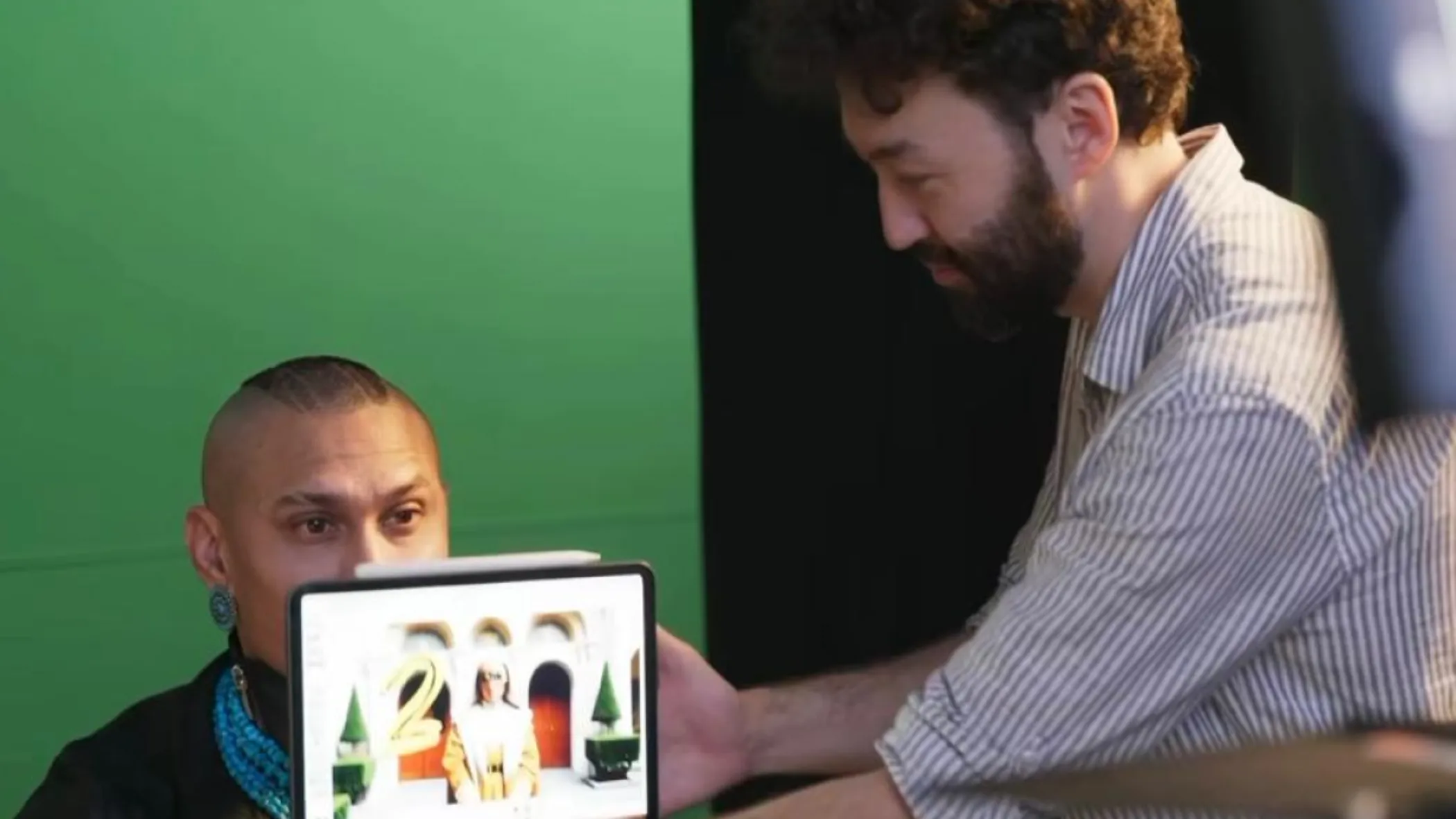
As a director, what are your thoughts on the current state of the film industry in Kazakhstan?
I believe that there is still no strong support from the government, unfortunately, even though it is often said that the needed support is given.
I have been in this industry for a long time, I am friends with many independent filmmakers, and they still struggle to secure funding. If they do get it, it is often insufficient. There are many problems, a lot of bureaucracy, and many people who stand between the funding and the filmmakers. This is, of course, a severe problem for all of Kazakhstan, not just the film industry.
In general, private studios are putting in effort to produce films made for a wide audience. However, another issue is that we now have monopolies in film distribution and the independent commercial film industries in Kazakhstan, and these monopolies are turning Kazakh cinema into very cheap material.
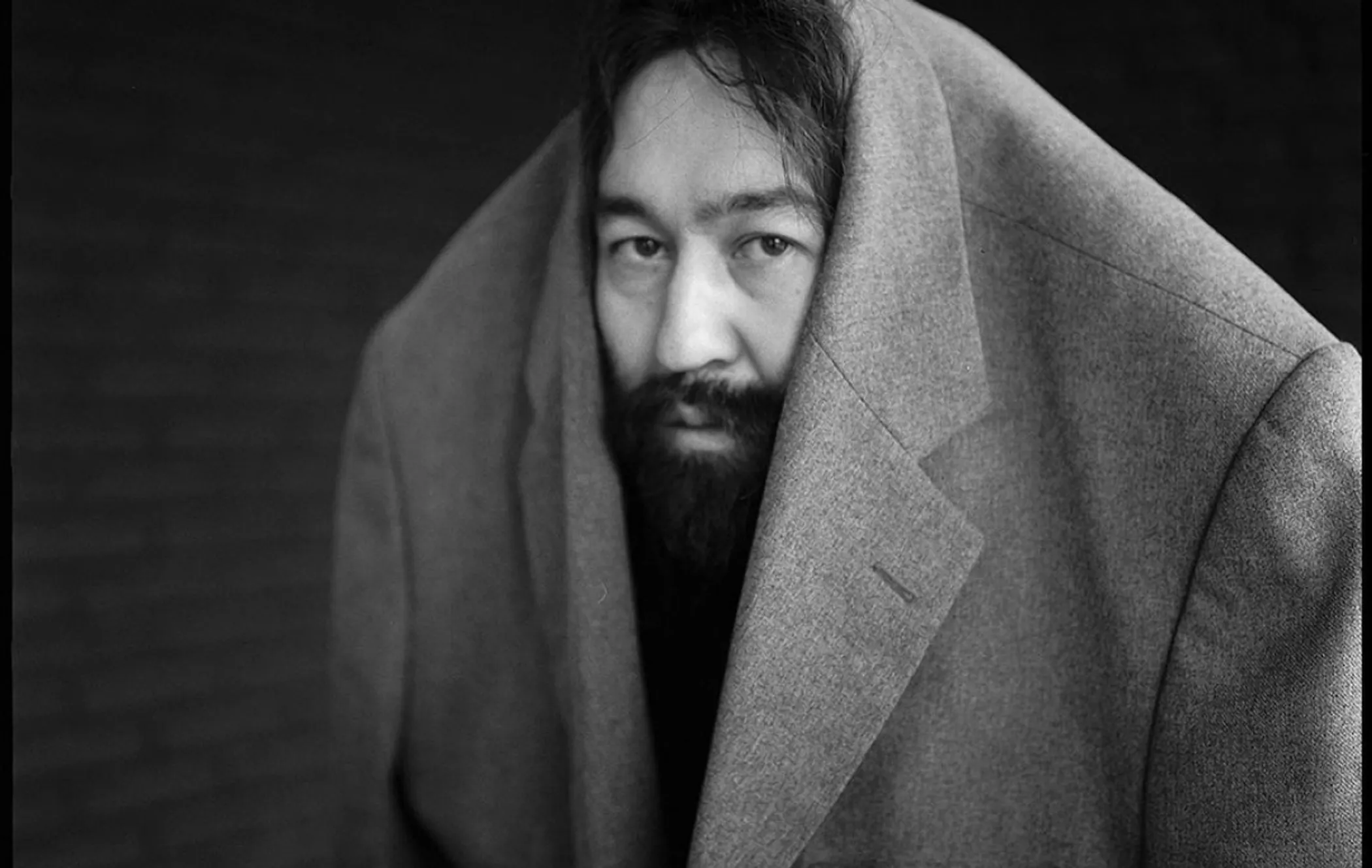
Any filmmakers you’d like to give a shoutout to?
Recently, I really liked Olzhas Bayalbayev’s film ‘Vzaperti'. It is a very high-quality commercial film. I also watched the film called 'Mirzhakyp: Oyan, Qazaq!' [QM—directed by Murat Yeszhan] recently. If we set aside the fact that this film was edited based on a series and had a limited production budget, it is a significant achievement for the Kazakh film industry. The topic of Alash Orda and the Holodomor in Kazakhstan [QM—famine in 1930s] is still unofficially restricted due to complex relations with our northern neighbor.
However, this is our history, and we should bring our heroes to light to educate the younger generation. In those challenging times, our people showed vivid examples of integrity, courage, honor, and self-sacrifice for the sake of preserving our culture and country.
I will reiterate that this film had many constraints, as it is very expensive and difficult to shoot historical movies. Despite this, the film is a breath of fresh air for our audience, standing out from the myriad of cliché comedies and low-quality movies in the theaters.
These days, many Kazakh artists and directors collaborate with global brands. How does this affect the creative process? How do you personally find a balance between commercial projects and your artistic endeavors?
As Americans say, I wear many hats. In some cases, I do not have a lot of freedom and control over the material, so I cannot fully immerse myself in the work, which is why the work is like a production run. Then there is another ‘hat’ — an artist. Having this role, I take full responsibility and control, and I act as an author who has something to say. The 'Kogershin' music video is an example of a project where I acted completely as an author. I had a task, an idea, and a message for the world: that war is bad, and we should be friends and love one another.
So when filming something, I remind myself to be aware of my situation so that I do not get burnt out or go crazy. I separate my work process into these two roles and say, 'Okay, right now I am working like this, but [as an author] I am doing this,' and that is how I find balance.
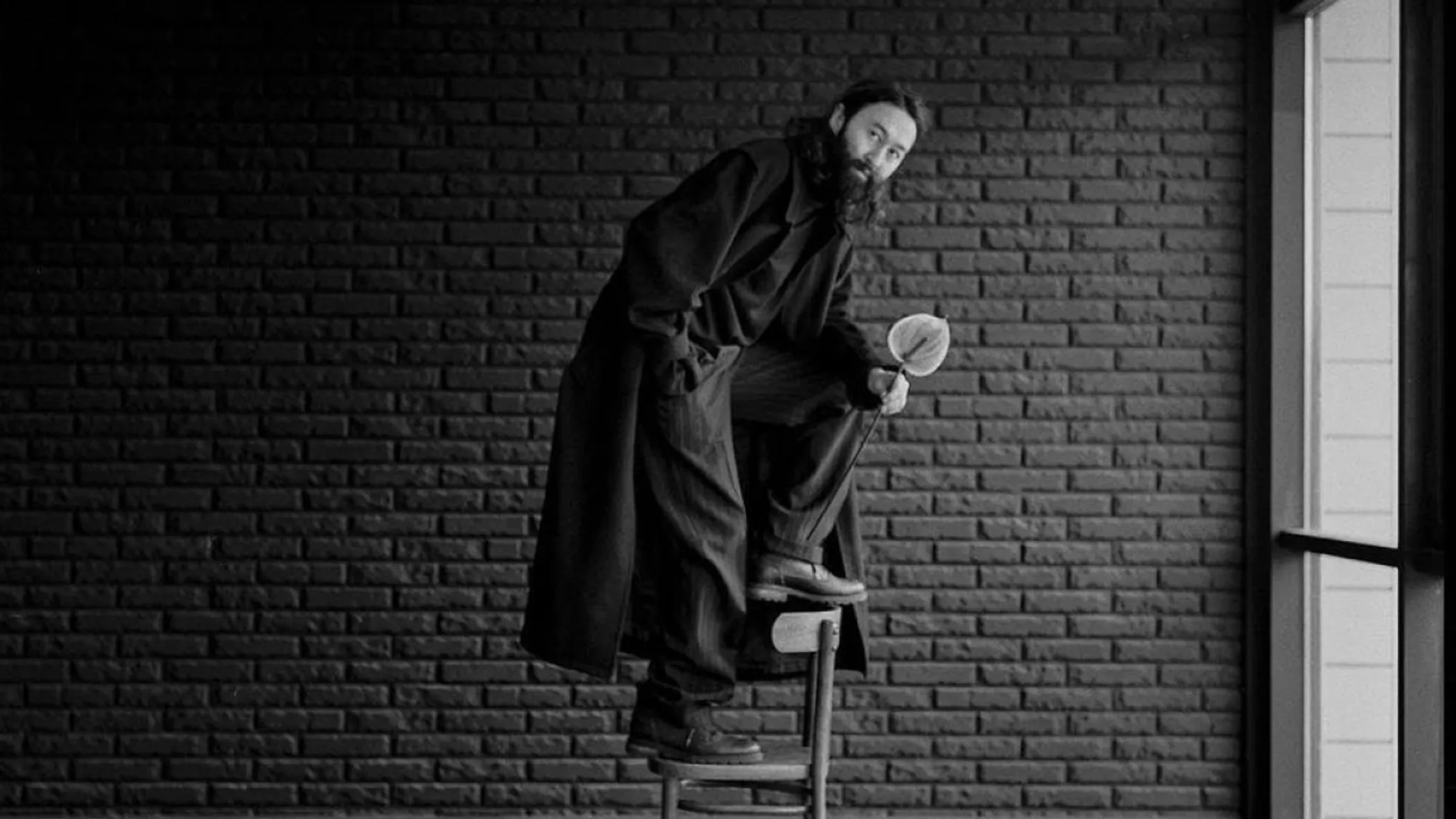
What other works of yours can viewers watch to get a better understanding of your creative vision?
I am not going to mention my advertising works, but I can highlight Galymzhan Moldanazar's music videos. I had one flagship music video that was supposed to be released, but the team decided not to publish it for now. It is a music video for Irina Kairatovna's song 'Adjare Gudju'. As of now, there is nothing specific that I would say, 'You must watch this,' unfortunately. But I hope that I will be working this year and create something that I can show you next year.
You recently mentioned in an interview that you want to make a full-length film in the future. Do you have any plans for it?
Yes, I have one idea that I wrote a long time ago. It is very commercial. It is a comedy so that it can be sold and screened without theaters saying, 'Let's not show this'. It has a bit of a social aspect, and I am thinking of returning to that idea, getting back to the script, and continuing to work on it.
